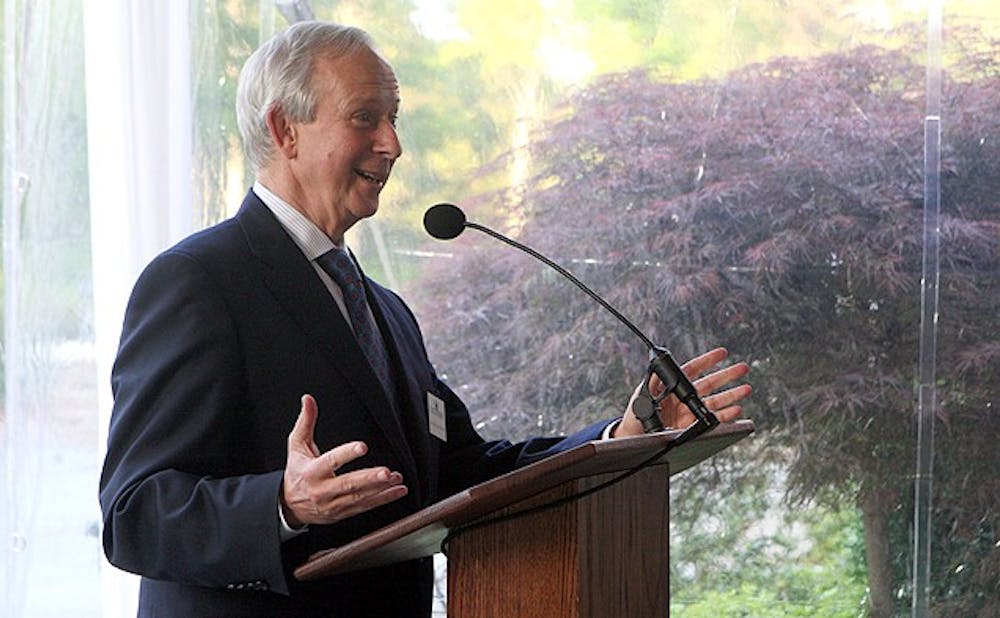Students had the opportunity Monday to discuss morality at the home of President Richard Brodhead, with a goal of applying the discussion to their everyday lives.
The three-course dinner at the Hart House focused on the challenges of exhibiting moral courage on campus. At their tables, guests discussed moments where they had “moral laryngitis”—instances where they were unsure of what was the right thing to do. The dinner, sponsored by the Honor Council, aimed to encourage students to be comfortable sharing personal moral dilemmas outside of this setting.
“The single thing that makes me happiest in a university is the idea of student initiative,” Brodhead said. “There would be nothing to discuss with this group of students if student life were entirely based on passivity. I like the idea that this University exists to serve students but also exists to be made by students.”
Although the Honor Council tries to hold a large event each year, Honor Council Chair Nick Valilis, a senior, said this is the first time the group has hosted a dinner. Students had to apply to attend to the dinner. Of the 80 applications received, only 15 were admitted.
“Our vision for this was to help Duke students find their voice,” Valilis said. “If you think of your values as a card deck, we want to add values to that deck, which allow us to act ethically and also give those ethics a voice.”
Because the Honor Council wants students to carry the knowledge learned at the dinner through the course of their academic career, no seniors were admitted to the dinner, Valilis said.
Steve Nowicki, dean and vice provost of undergraduate education, noted that discussions on moral courage do occur on campus, but are not as widespread as they should be.
“Too many students don’t know how to reach out to have these kinds of conversations either with their peers, professors or administrators,” Nowicki said. “The value of this [event] is that it was intentionally made to be very visible, and that will help bring this kind of discussion into the limelight.”
Students shared their various opinions on the best way to move forward from the dinner. Jack Morris, a junior, said students should make other members of the Duke community comfortable to speak freely of instances of moral paralysis.
“You can’t tell people what to do in a given situation,” he said. “The best thing we can do is to create an environment that fosters the ability for people to rise up and speak out.”
Not all attendees agreed with this sentiment, however. Dan Ariely, James. B. Duke professor of behavioral economics, spoke against the idea that moral courage can be purely be solved by open discussion. He said the best way to implement moral courage on a wider scale is through paternalism—stricter rules carried out by the University to prevent immorality.
“The reason that we have punishment is because we want to deter, and without deterrence you cannot create any trust,” Ariely said. “If you think that morality is something important for the community, then we need to be much more strict about violations and understand that even small violations have effects.”
Although no one in attendance was able to come to a concrete decision on how to advocate for moral courage, Danielle Nelson, a sophomore, said having these conversations will eventually lead to more answers.
“We asked more questions, didn’t get any answers, and that’s the nature of this sort of dinner,” Nelson said. “The word moral is fueled—it’s difficult to define what morality means. But having these conversations, we are able to come up with concrete ways to work moral courage into our daily life.”
Get The Chronicle straight to your inbox
Signup for our weekly newsletter. Cancel at any time.

